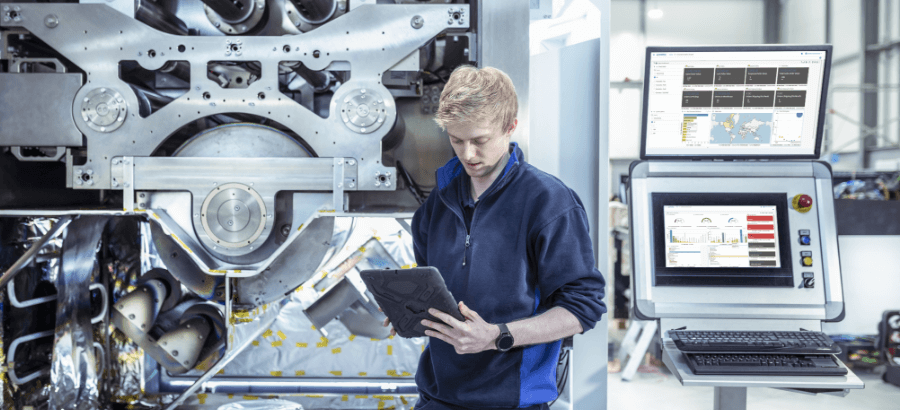Manufacturers are facing a unique set of constraints and efficiency has never been more important to the industry than now. Businesses are continuously trying to find ways to maximize productivity and reduce waste to remain competitive in the global marketplace.
Since its beginnings as the Toyota production system, lean manufacturing has impacted the way industries produce goods and when implemented correctly it will deliver desirable benefits like improved quality, lead times and productivity. However, manufacturers can only reap those benefits if they implement the right processes to enable this approach and embrace a strategy of continuous improvement.
What is lean manufacturing?
Lean manufacturing is a production process that is based on maximizing productivity while simultaneously minimizing waste within the manufacturing operation. The type of waste in the manufacturing business includes processes, activities, products, or services that require time, money or skills that do not create value for the customer. Improving or removing these inefficiencies should streamline processes, reduce costs, and ultimately provide savings, increasing competitive advantage within the supply chain.
The benefits:
Waste in any industry whether it’s decreased productivity, manual or poor processes or unused materials impacts the entire supply chain. The benefits of lean manufacturing include streamlining and improving processes and increasing product quality. This in turn frees up employees and resources for innovation and quality control, improving customer satisfaction all while saving time and money.
- Eliminate waste: Waste is a negative factor for cost, deadlines, resources, and the environment. It does not add value to the product or service.
- Improve quality: Improved quality allows businesses to stay competitive and meet the changing needs and wants of customers. Designing processes to meet these expectations will keep you ahead of competition.
- Optimize costs: Overproduction or having more materials than required creates storage costs, which can be reduced through better processes, materials management and supplier relationships.
- Manage time and resources: Increasing productivity, reducing lead times whilst reducing waste also increases team morale.
ERP in lean manufacturing
Data from the ERP system is the first step to optimizing the flow of products and services in your supply chain to reduce waste.
ERP gives you a single-view of your plant operations and with visibility into what processes are taking more time or what machines are working at less-than-optimum it enables you to make better business decisions based on real-time data. ERP supports lean manufacturing in:
- Reduced inventory waste: As a manufacturer you expect to have a certain level of raw materials and product maintained in inventory. However too much inventory is also not ideal, and an ERP system can assist with achieving the efficiency with inventory levels. An ERP system has the tools for forecasting, stock accuracy, tracking historical data for sales and works orders which will assist you to set minimum or maximum stock levels. An ERP system can provide automated reordering and inventory management. Allowing the organisation to specify buffer stock levels for critical raw materials. Providing the information to help with building closer relationships with suppliers and partners.
- Avoiding defects: Defects affect productivity, team morale, profits as well as customer perception especially if recalls are required. An ERP system can help to reduce this waste by implementing quality processes throughout the manufacturing process. Key Performance Indicators can be monitored to highlight potential processes or operations that are affecting the quality of the finished product. Allowing for proactive maintenance, management and continuous improvement.
- Improved production planning: Manual processes are time consuming and prone to errors. Automated processes, based on business rules, and visual production scheduling will help with increasing efficiencies in production planning. Capturing runtime and production performance will further aid the production planning discipline. With ERP many production processes can be automated, for example with a click of a button you can have a quote turned into a Bill of Materials (BOM), Sales Order and a Works Order. Further insights from your data also deliver critical information on your production goals and KPIs.
Investing in an ERP system is the foundational step to achieve lean principles within your manufacturing operations. ERP has purpose-built tools to enable better supply chain management, an automated procurement process and to accurately forecast demand based on historical data and industry trends.








1 thought on “Can ERP support lean manufacturing?”
This article clearly explains us about the importance and need of the ERP software. It was very knowledgeable. If anyone is looking for a smooth and proper functioning ERP software, they can visit http://www.zenoids.com and get the best packages with excellent solutions.